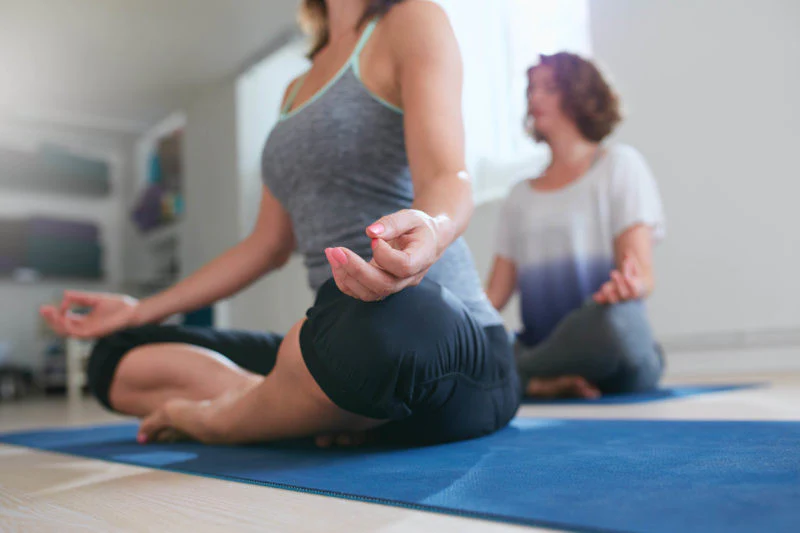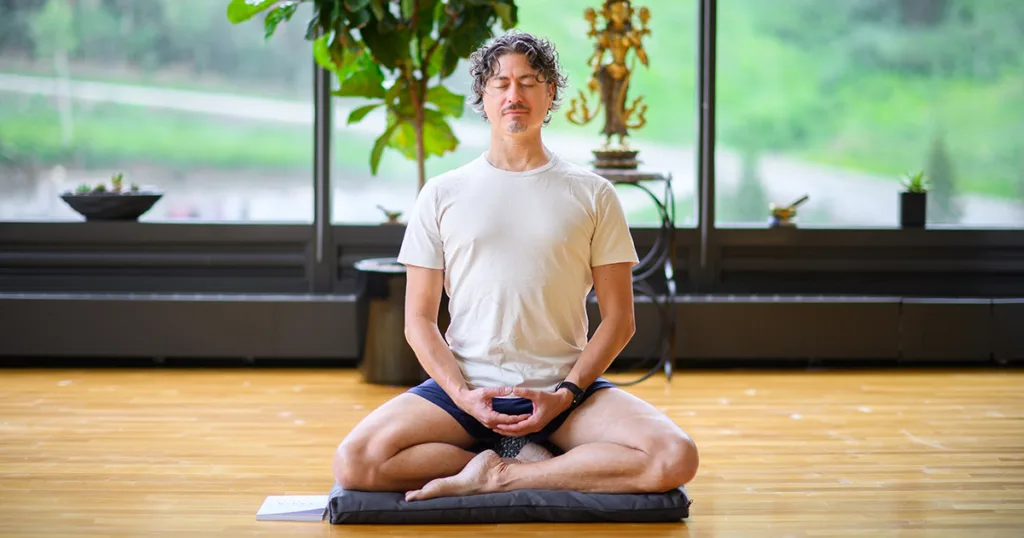
In the fast-paced world we live in, finding moments of calm and reflection is essential for overall well-being. Meditation, with its myriad of techniques, provides a pathway to inner peace, reduced stress, and enhanced mental clarity. Let's explore ten types of meditation that can be incorporated into your daily life to promote a sense of serenity and mindfulness.

Mindfulness meditation, rooted in ancient Buddhist practices, involves bringing full attention to the present moment without judgment. It often centers around focusing on the breath, observing thoughts, and cultivating awareness of sensations in the body. Mindfulness meditation is widely embraced for its ability to reduce stress and increase overall awareness.
Loving-kindness meditation, also known as Metta meditation, is a practice of cultivating compassion and goodwill towards oneself and others. Practitioners typically repeat phrases or affirmations that express love and kindness, gradually extending these feelings to friends, family, acquaintances, and even those they may find challenging.
Transcendental Meditation (TM) is a mantra-based meditation technique that involves silently repeating a specific mantra to achieve a state of deep relaxation and transcendence. Developed by Maharishi Mahesh Yogi, TM is known for its simplicity and accessibility, making it suitable for individuals of all ages and backgrounds.
Guided meditation involves following the instructions of a meditation guide or listening to pre-recorded sessions. This type of meditation is excellent for beginners or those who find it challenging to meditate independently. Guided sessions often focus on relaxation, visualization, or specific themes to guide the mind into a state of tranquility.
Zen meditation, or Zazen, is a form of seated meditation rooted in Zen Buddhism. Practitioners typically sit in a specific posture, focus on the breath, and observe thoughts without attachment. Zazen aims to cultivate mindfulness and insight, allowing individuals to experience a deep sense of presence and clarity.
Body scan meditation involves directing focused attention to different parts of the body, usually starting from the toes and progressing to the head. This practice promotes body awareness, relaxation, and the release of tension. Body scan meditation is effective in grounding the mind and fostering a connection between the mind and body.

Chakra meditation aligns with the concept of energy centers, or chakras, within the body. This practice involves visualizing and balancing the flow of energy through each chakra. Chakra meditation is believed to enhance overall well-being by addressing imbalances in the body's energy system.
For those who find stillness challenging, walking meditation provides an active yet mindful alternative. This practice involves walking slowly and intentionally, paying attention to each step and the sensations associated with movement. Walking meditation can be practiced indoors or outdoors, offering a unique way to cultivate mindfulness.
Mantra meditation involves repeating a specific word, phrase, or sound (mantra) silently or aloud during the meditation session. The rhythmic repetition of the mantra helps focus the mind, induce a state of relaxation, and deepen concentration. Common mantras include "Om," "So Hum," or personalized affirmations.

Breath awareness meditation centers on observing the natural rhythm of the breath. Practitioners focus on inhalation and exhalation, bringing attention back to the breath whenever the mind wanders. This simple yet powerful technique promotes relaxation, reduces stress, and enhances mindfulness.
The beauty of meditation lies in its diversity, allowing individuals to explore and find the technique that resonates most with them. Whether you choose mindfulness, loving-kindness, or another form of meditation, the key is consistency. By incorporating meditation into your daily routine, you can tap into a profound sense of peace, clarity, and overall well-being.
Q. How long should a meditation session last for beginners?
Ans: For beginners, starting with short sessions of 5 to 10 minutes and gradually increasing the duration as comfort and focus improve is recommended.
Q. Can meditation be practiced anywhere?
Ans: Yes, meditation can be practiced anywhere, whether at home, in nature, or even in the workplace. Find a quiet and comfortable space to enhance the experience.
Q. Is it necessary to sit cross-legged during meditation?
Ans: No, the sitting posture can vary based on comfort. Sitting in a chair, on a cushion, or using supportive props are all acceptable for meditation.
Q. How can I make meditation a habit?
Ans: Establishing a regular meditation routine involves setting aside a specific time each day, creating a dedicated space, and starting with manageable durations. Consistency is key to forming a meditation habit.
Q. Can meditation help with sleep issues?
Ans: Yes, certain meditation techniques, such as mindfulness and body scan meditation, can be effective in promoting relaxation and addressing sleep issues. Establishing a pre-sleep meditation routine can contribute to better sleep quality.
Disclaimer: SPIRITUAL DEVOUT claims no credit for images featured on our blog site unless otherwise noted. All visual content is copyrighted to its respectful owners.